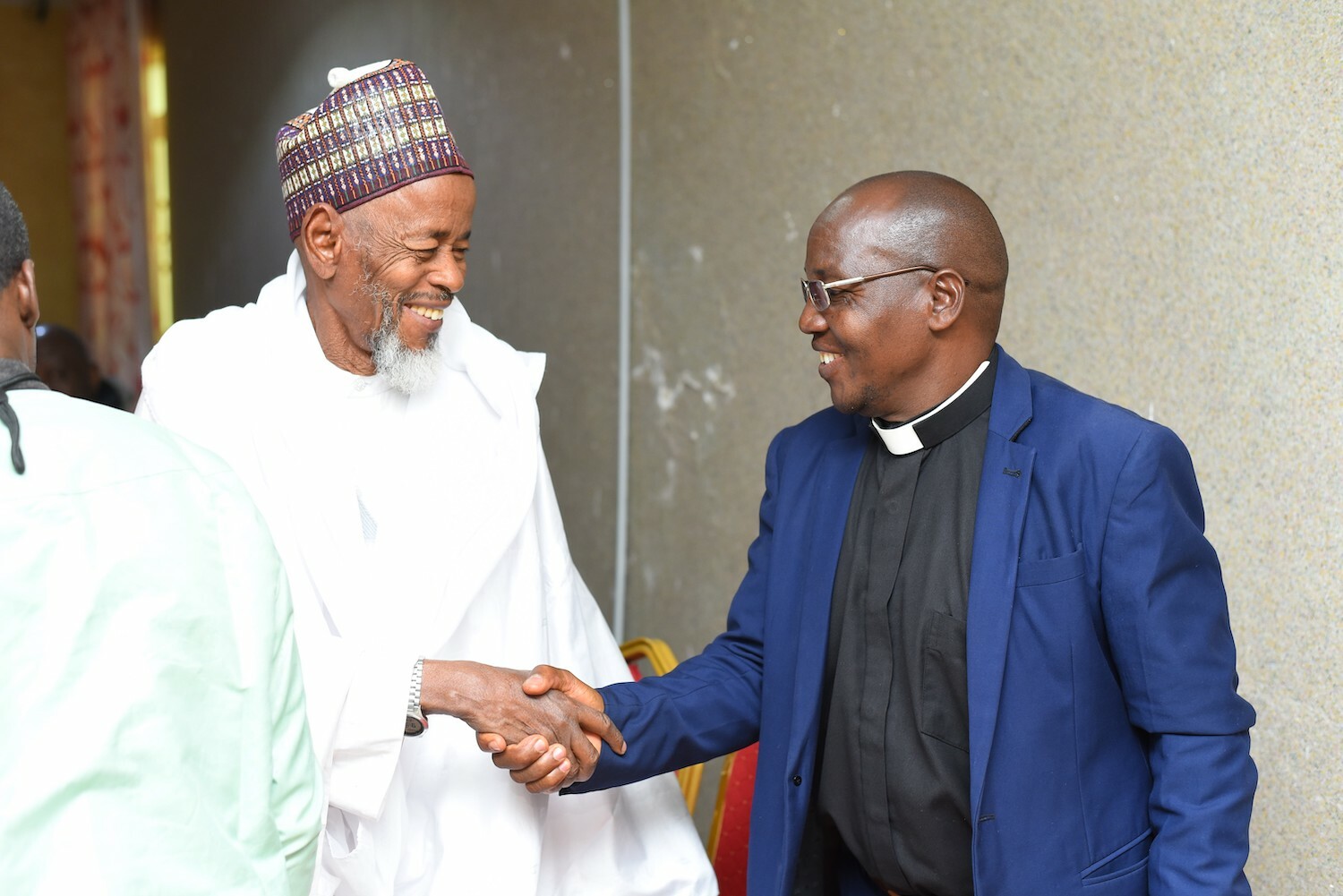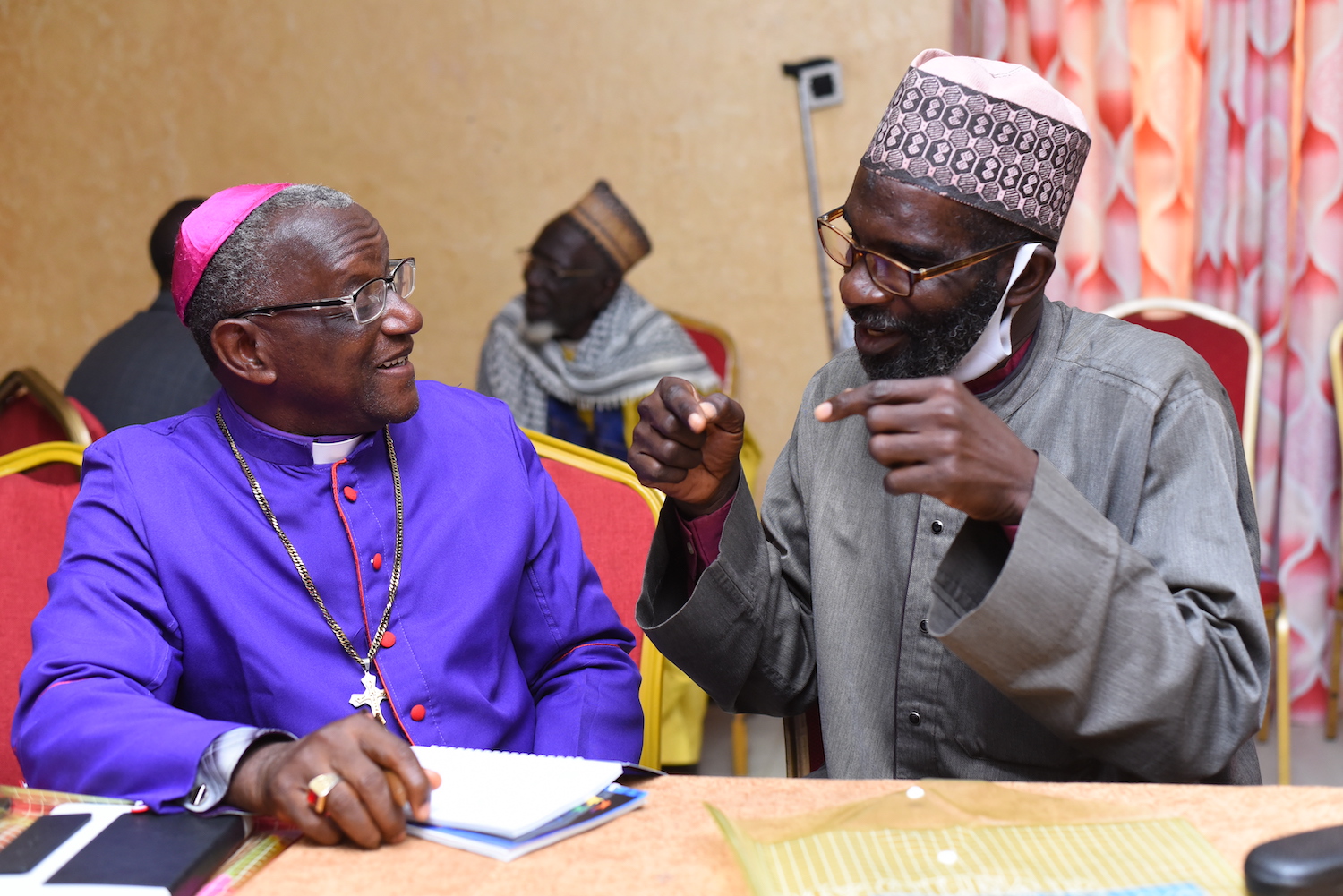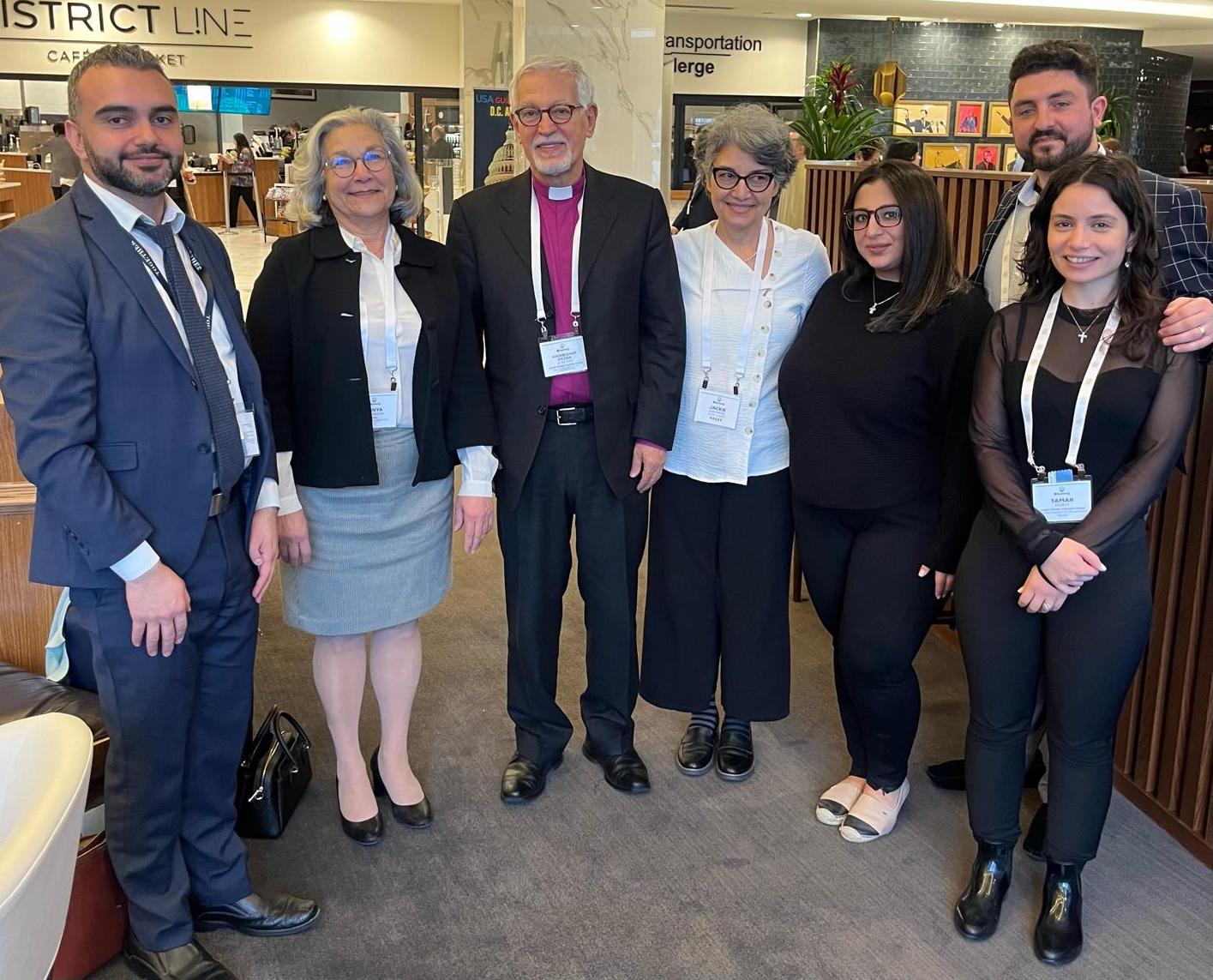GPF USA President Alan Inman said that the Africa diaspora living in the USA has much to contribute to the welfare of their adopted country at a meeting of African expatriates in Arlington, Virginia on October 2, 2015. “Immigrants have always brought strongly held values and traditions of family and faith, which not only have the power to bind together the diverse peoples, but have been the underpinnings of a strong America,” Mr. Inman told the exploratory meeting convened by Global Peace Foundation USA and the U.S. Committee for Refugees and Immigrants. “We need to focus on the root causes of problems in America that have created the family breakdown and violence in our society.”
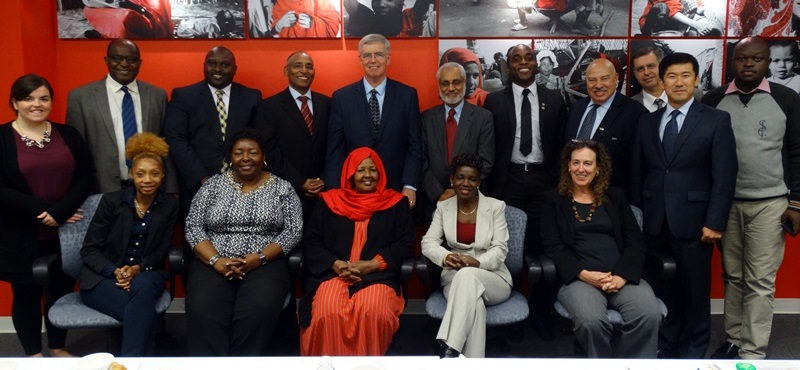
Fifteen representatives of seven African countries of origin—Congo, Ethiopia, Kenya, Nigeria, Rwanda, Sierra Leone and Somalia—shared insights about the challenges of transitioning from their homelands to life in twenty-first century America at the meeting, which was moderated by GPF-USA’s National Director for the Strengthening Families and Communities Coalition.
Reflecting on concerns with unhealthy aspects of popular culture, the African nationals also explored opportunities to partner with a broader group of diaspora leaders to provide support for GPF USA’s Campaign for American Renewal (CAR). CAR works with leaders of faith and civic organizations to revitalize the nation’s moral and ethical foundations. This “civic focus” affirms that different faith traditions share agreement on essential principles and values, which is a foundation for concerted action to renew the nation’s founding ideals.
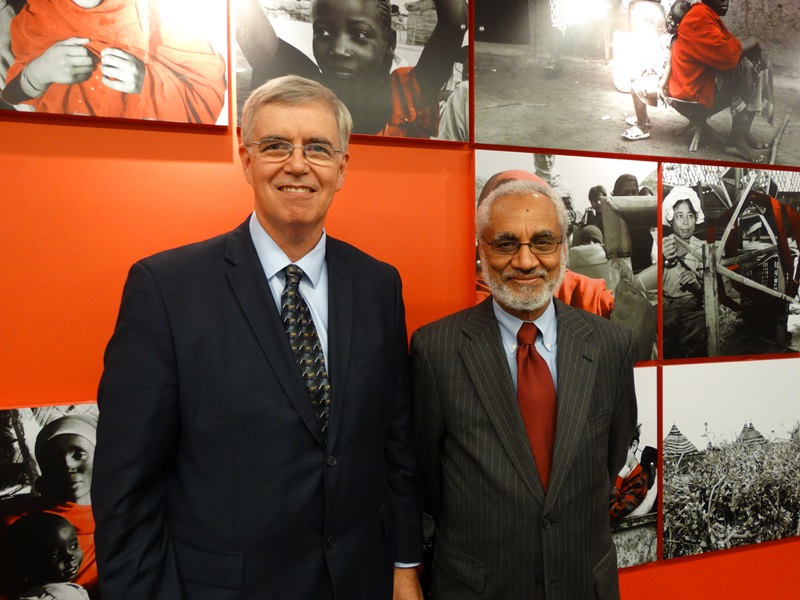
GPF International President James Flynn (left) and Dr. Tsehaye Teferra, Founder and President of the Ethiopian Community Development Council, Inc.
The day-long program included presentations and discussions on the African diaspora experience in the U.S., what is meant by “American Renewal,” and how the African diaspora can meaningfully contribute to bridging divisions and upholding values that can advance to the welfare of families and the wider society.
Among the challenges that participants cited were that the African community was so diverse and separated that is was difficult to communicate among the African expatriates living in the USA. Others said the experience of refugees was unlike the experience of immigrants who did not arrive here as refugees, which made communication between the groups difficult.
A further complexity cited was that African immigrant and refugee groups do not see themselves through the experience of the African American population whose ancestors arrived generations earlier as slaves. Participants said there is little connection between the two communities and discussed the need to create a shared narrative of why all are here in America.
Addressing the diaspora representatives, GPF International President James Flynn outlined the work of the Global Peace Foundation in four African countries, emphasizing the organization’s commitment to multi-sector engagement with civil society and government guided by the vision of One Family under God.
Mr. Flynn said that the most pressing challenges can be attributed broadly to either conflict or corruption. “Our biggest goal is to stimulate a transformation in the world where we all recognize ourselves as part of the human family and we are all global citizens,” he said.
To talk about American Renewal, he added, requires that we understand what it means to be an American. “The concept of this nation is built upon ideals. To be an American is to ascribe to a certain vision for how we live and work together. ‘We hold these truths to be self-evident, that all are created equal…’ It is important to engage with the African diaspora because you are part of the American fabric, a reminder to our nation that we can serve and help around the world through the immigrant communities here.”
Plan of action
Mr. Inman then led a discussion of how the African diaspora could be engaged in the Campaign for American Renewal. He drew a map of the USA and the continent of Africa, showing how the diaspora living in America both contributes to American society and supports Africa.
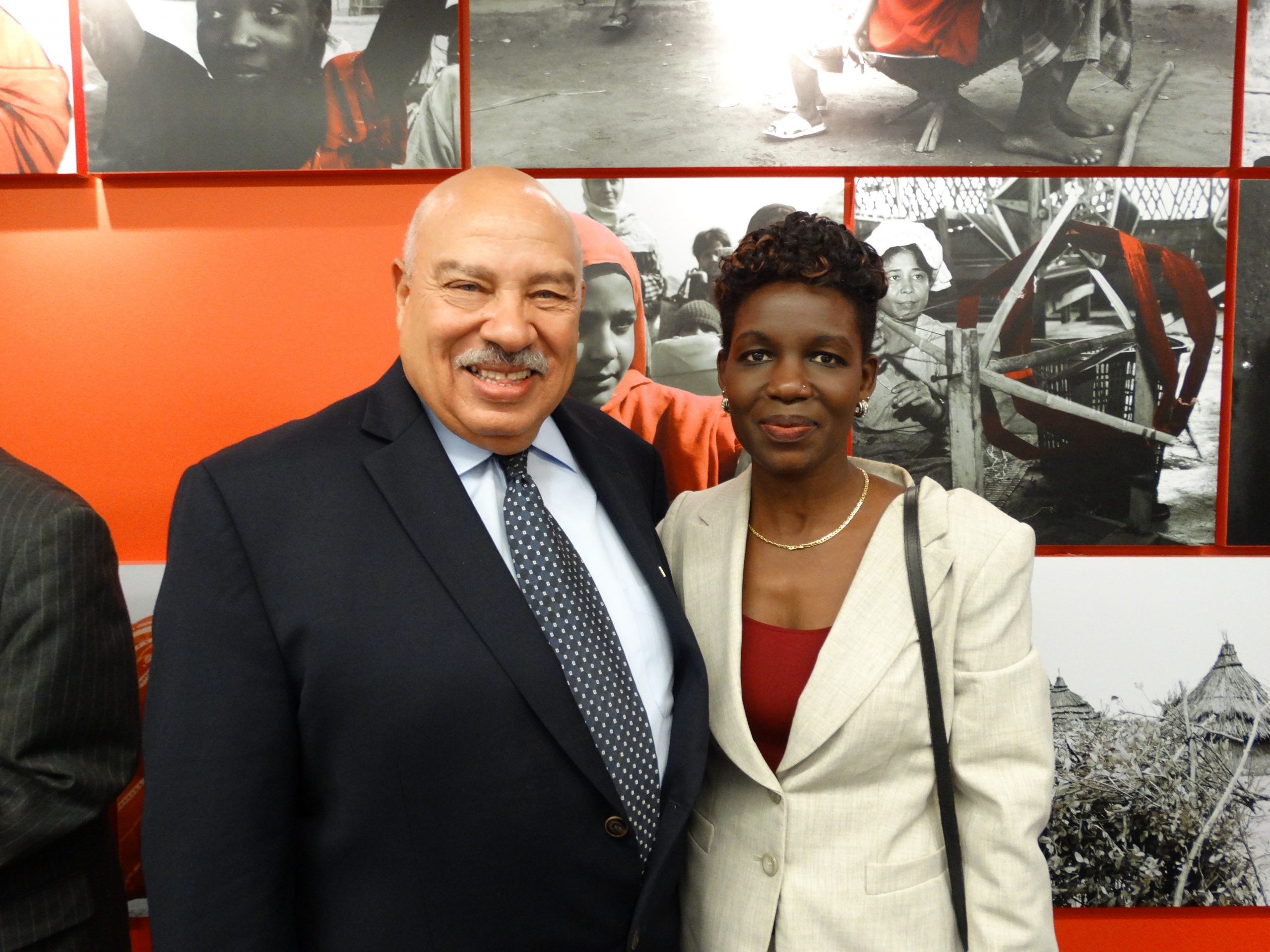
GPF USA President Alan Inman and Ms. Benedicte Aseru Tshandiru f DRC Congo), currently working with the Montgomery County Coalition for the Homeless.
Mr. Inman envisioned the African diaspora as one of many groups (using the imagery of patches in a quilt) that will work to make a collective impact to renew America and also support efforts to advance peace and social cohesion throughout an increasingly diverse world.
Diaspora participants were eager to follow up the exploratory meeting with further networking. “This is about individuals and communities taking ownership—but this is more powerful,” said one diaspora member. “We are working for American renewal while we are working for our own homeland.”
Another said that engaging the black community and recognizing their contribution is the best way to bring people together, while another participant recognized that the leaders in the room “have many tangible accomplishments and are well equipped to move this agenda to the next level.”
Mr. Inman invited one representative of the African diaspora to attend a closed door summit for diverse U.S. faith and civil society leaders to further advance GPF USA’s First Amendment Campaign for American Renewal.

